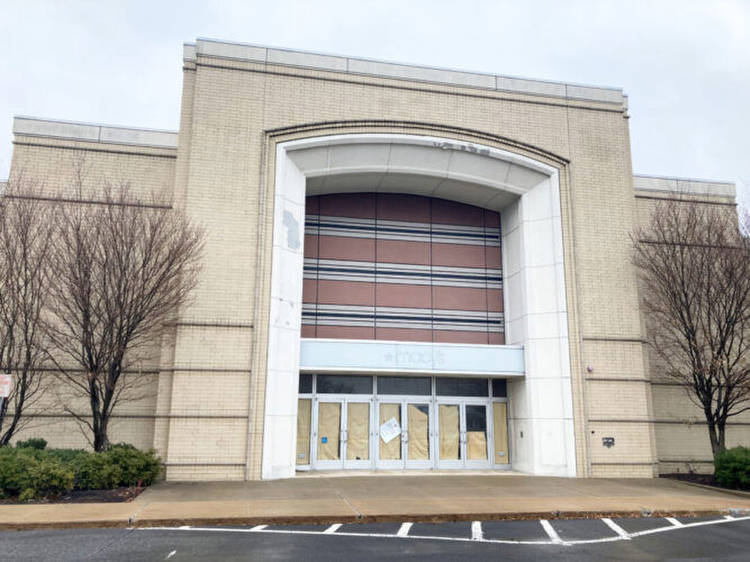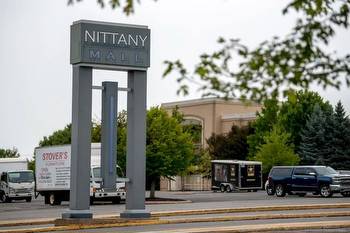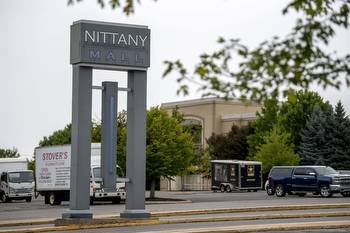Nittany Mall mini-Casino is a go

BELLEFONTE — The developer for a planned mini-casino at the Nittany Mall in Centre County hopes the enterprise will revitalize the region.
Penn State alumnus and businessman Ira Lubert, owner of SC Gaming OpCo LLC, was awarded a Category 4 slot machine license during a Pennsylvania Gaming Control Board hearing this week.
The planned casino will be located in the former Macy’s store at the Nittany Mall.
This week’s board vote wraps up a more than two-year process that began Sept. 2, 2020, when Lubert secured the right to locate a casino with a winning bid of $10,000,101 at a Category 4 auction.
Lubert filed an application with the board in January 2021 to locate the casino in a 94,000-square-foot space at the mall along College Avenue in College Township.
At that time, Bally’s Corp. announced it had signed an agreement with Lubert to develop the planned $120 million mini-casino.
While Bally’s said that construction could start on the casino in the first half of 2021, that didn’t happen as the Gaming Board conducted a background investigation into the application and collected public input on the casino plan from local residents, community groups and public officials.
A public hearing was held in College Township on Aug. 16, 2021, and written comments were accepted through June 12, 2022.
On Wednesday, the Gaming Board held its final licensing hearing in which representatives of SC Gaming and Bally’s Corp. were questioned about the project.
Eric Pearson, an Adjunct Professor at Penn State’s School of Hospitality Management, was on hand for the hearing and was named as the casino’s prospective CEO and general manager.
During the hearing, Lubert said as a resident and business owner of State College, the area is very important to him and he hopes reinvigorating the property will draw in new businesses, create jobs and help the local economy.
“I see an opportunity for the commonwealth and a local community in need of additional economic engines,” Lubert said. “As we have all seen brick-and-mortar retail shops have taken slumps in recent years, as internet-driven retail commerce has grown and then skyrocketed in the age of COVID, shopping malls in particular have been hit hard and this includes the Nittany Mall.”
Pearson addressed the board about safety and underage drinking and gambling.
“In my over 20 years in the industry, I’ve come to view safety and security as not only operating functions but as truly a competitive advantage,” Pearson said.
Pearson listed around the clock security personnel and surveillance, the mandatory identification of patrons who appear 30 years old or younger, ID scanning and verification technology at casino entrances, hourly roving patrol coverage in parking lots and constant roving patrol coverage during peak times as some of the ways the casino would keep its customers and the community safe.
Lubert sole owner
Adrian King of Ballard Spahr LLP, the firm representing SC Gaming, said SC Gaming was founded and is solely owned by Lubert — a point made because Stadium Casino had argued SC Gaming had other investors.
In 2020, Stadium Casino lost the bid to apply for the mini-casino license to SC Gaming and then filed a petition for legal discovery into SC Gaming’s funding sources. That petition was denied in December, according to gaming board records.
Mark Aronchick of Hangly, Aronchick, Segal, Pudlin & Schiller, representing Stadium Casino, argued that the gaming board didn’t have the statutory authority to “consider this particular application the way it’s structured.”
“(The General Assembly) said specifically — it’s in the legislative intent, it’s in the history, it’s in the statute itself — that this particular license goes to existing casinos or individuals with an interest in existing operations,” Aronchick said. “In a sense, keep this in house.”
Therefore, Lubert, who would be creating an entirely new casino, would not be eligible, Aronchick said.
Stephen Kastenberg of Ballard Spahr said that “the eligibility includes the requirement that the applicant be in compliance with the Gaming Act.”
“So, all of the things that my colleague says are challenges to your statutory authority are, in fact, exactly what you should be doing as part of your determination of eligibility,” Kastenberg said, adding that there was nothing unusual about Lubert’s application.
The gaming board’s Chief Enforcement Counsel Cyrus Pitre agreed, saying the gaming board’s authority “is in the Act.”
“The Act is replete with the authority of this board,” Pitre said. “So, as far as I’m concerned, that argument goes right out the window.”
All votes favor license
The board went into executive session then came back to vote, with all members approving the license.
Stadium Casino could file an appeal, which could delay the casino plans again.
“At this point, we’re just waiting to see what the next steps are,” said Mike Bloom, assistant manager of College Township.
The original plan for development was submitted and given tentative approval nearly two years ago, he said.
The township expects more documents related to actual construction and the finalization of the highway occupancy permit based on traffic studies.
“It’s pretty traditional conditions for land development,” he said.
Because the entire project rests with the gaming control board, final plans are to be determined based on if there is an appeal.
During the final hearing to the gaming board, SC Gaming documents pointed out that the regional market draw of the casino would have a positive impact on College Township tourism, would help revitalize the Nittany Mall and attract other retail and hospitality operators to the area.
Customers could be local or from out of town, a local impact study states.
“These customers bring additional potential spending into the community on other local businesses including restaurants, hotels and retail,” according to Econsult Solutions Inc., which compiled the study.
“Tax revenues to the township from the casino will be a significant net positive to the budget,” the study states.
Construction to cost $35 million
According to the project overview submitted to the gaming board, upfront construction costs are estimated at $35 million, providing a $43.6 million one-time economic impact to College Township, supporting 360 jobs and $16.4 million in employee earnings. In addition, the one-time economic impact on Centre County is projected at $61.4 million, supporting 460 jobs and $21.3 million in employee earnings. The one-time economic impact on the state is estimated at $73.3 million, supporting 520 jobs and $24.7 million in employee earnings.
The total project budget was set at $127.6 million with construction expected to be complete within 12 months of the project’s start date.
Once complete, the casino would operate 24 hours a day, seven days a week and include 750 slot machines, 30 table games and a retail sports book.
The table games and sports book are pending further gaming board petitions and approvals, according to project documents. According to gaming board documents, SC Gaming could petition for permission to operate up to 30 table games for an additional fee of $2.5 million with the capability of adding an additional 10 table games after its first year of operation.
The casino will also include a sports-themed restaurant and bar along with a stage for live music and special events.
The casino expects to support the full-time equivalent employment of 350 people.




























